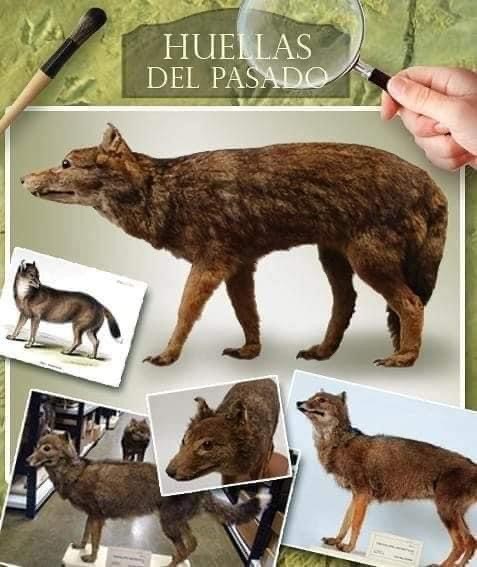Keeping away from the politics I always refer to Falkland/Malvinas Islands or vice versa. Politics has nothing to do with this but some good points are made here:
THE EXTINCT FOX - WOLF OF THE MALVINES
On this special day we get to know a species that is intimately linked to the colonization of our Malvinas islands, which was previously treated in our cycle Footprints of the Past.Let's remember the Malvinian wolf-fox or Malvinian wolf (Dusicyon australis), a canid endemic to the Malvinian Islands, which is sadly extinct. This species, called "guará" by the first Rioplaten inhabitants, holds a deep connection to the archipelago's history.
Since the 18th century, the wolf-fox fell victim to a ruthless hunt. Crews of goldfish and whaling ships chased it for its skin, coveted for its quality and beauty. Charles Darwin, when visiting the Malvinas Islands, witnessed this hunt and predicted that due to his total lack of fear in front of humans, the sad reality that was approaching: the extinction of the wolf-fox.
The arrival of English sheep colonies marked the final chapter for this species. Considered a predator to its livestock, the wolf-fox was extinct in less than a century. The colonial government encouraged its elimination through the payment of rewards, feeding a vision that considered it a plague.
The history of the fox-wolf of Malvinas keeps a parallel with the current situation of the yaguaret, the cougar and other carnivores in Argentina. Persecuted and exterminated under the same logic of “noxious animal”.
Despite its extinction, the Malvinas wolf-fox left an invaluable legacy. Thanks to samples and skins preserved in museums, a genetic study in 2009 confirmed that its closest relative is the guazú, as recognized by the ancient Argentinian settlers.
Malvinas fox-wolf is not just a reminder of lost natural richness. His story calls us to reflect on the responsibility of protecting biodiversity and defending our natural heritage.
It's time to learn from our mistakes and work for a future where coexistence with nature is possible, both in the Malvinas Islands and in the rest of the Argentinian territory.
Information from Patas y Patitas







No comments:
Post a Comment